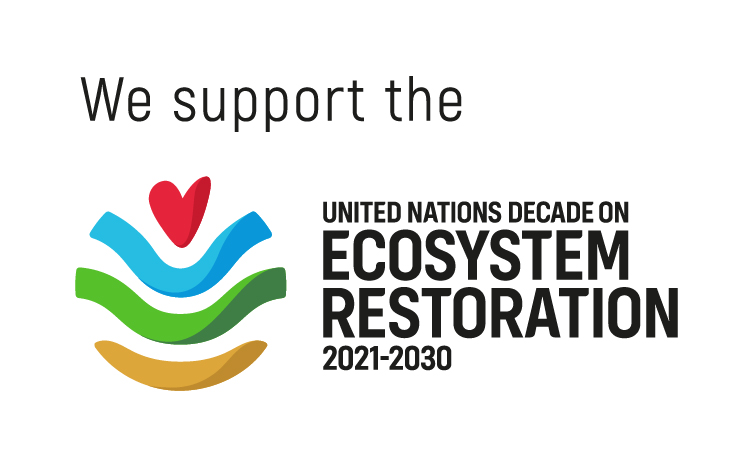Trees for Migratory Birds™
Chilakapalem, Andhra Pradesh, India
Project Purpose
Trees for Forests™ & WildlifePlant Now Location

In FY 2024-25, tree plantation of 15,000 trees will be carried out in Chilakapalem village in Andhra Pradesh

Enhancement of
Biodiversity

Increase in
Green Cover

Reduction in
Air Pollution

Control Soil Erosion

Conservation of
Water Table





Why Trees?
India hosts a remarkable diversity of bird species, with approximately 1,349 recorded as of 2019. According to WWF, 78 species among these are endemic to the country, and 212 are globally threatened.[1] However, there has been a concerning decline in the percentage of migratory bird species visiting India annually, largely due to habitat loss. This is driven by deforestation, wetland drainage, introduction of non-native plant species, urban expansion, and intensive agriculture.[2] A UN report indicated that nearly 44% of migratory bird species populations are in decline, underscoring the urgency of conservation efforts.[3]
A crucial step in mitigating the decline of migratory bird populations is to identify and safeguard vital locations serving as breeding, feeding, and stopover sites. One such location is Chilakapalem village in Andhra Pradesh, which hosts a significant waterbody attracting diverse water bird species throughout the year.
Chilakapalem village's wetlands provide an essential habitat for various water bird species, including ducks, geese, herons, egrets, and storks. Positioned strategically along migratory routes, it serves as crucial feeding and resting grounds for numerous bird species. To conserve the habitat and bolster migratory bird populations, plantation activities are proposed around the waterbody in Chilakapalem village. This initiative aims to provide shelter, food, water, and protection from predators, thereby restoring the habitat and fostering the conservation of migratory birds.
Efforts to protect and restore habitats such as Chilakapalem village play a vital role in conserving migratory bird species. By addressing threats such as habitat loss and implementing targeted conservation measures, we can contribute to the preservation of India's rich avian biodiversity for generations to come.
Tree Species
In this tree plantation initiative, we have carefully chosen the tree species that would maximise the benefits. We have planted local tree species such as Neem (Azadirachta indica), Jamun - Neredu (Syzygium cumini), Pongam - Karanj (Pongamia Pinnata) and Indian tulip - Gangaraavi (Thespesia populnea) for their ecological value.
The Fruits of Jamun and Neem trees are often eaten by frugivorous birds. Karanj trees are known for their ability to restore degraded and contaminated land and its incredible ability to prevent soil erosion. The India tulip tree also helps in erosion control and improving the soil quality aiding in an attempt to restore the degraded region.[4]
Social Impact
Tree plantation offers numerous benefits that span across multiple aspects.*
Our project generates employment opportunities for the local communities since we are committed to working closely with them across all our planting sites. Their contribution in preparing the saplings in the nursery, transportation of the saplings, plantation and maintenance is invaluable. They can also earn additional income from the plantation produce. Once the trees mature, they can supplement their income from timber and fruits. We have an inclusive policy and encourage women’s involvement in our tree plantation initiatives. This allows them to support themselves and their families.
Tree plantation will allow us to regulate the natural water cycle, thereby improving the water quality. This will also recharge the groundwater, ensuring that water from rainfall and other sources soaks into the ground and refills underground water sources. Villagers will be able to save enough water for drinking, agriculture and other purposes.
By reducing soil erosion and improving the overall soil quality, the agricultural productivity of the villagers will also see a boost. Additionally, since livestock is a major source of sustenance in rural areas, we aim that our plantation will provide ample fodder to meet their needs.
Trees do an excellent job absorbing carbon dioxide from the atmosphere. A mature tree can absorb up to 20 kg of CO2 each year. Trees reduce pollution, keep the temperature cool and reduce atmospheric stressors.
*The environmental benefits of the trees reach their full potential as they mature.
[1] Aishwarya Das Pattnaik. World Migratory Bird Day. WWF
[3] AP (2024). Nearly half of world's migratory species declining, shows UN report. Business Standard
[4] Friday, J. B., & Okano, D. (2006). Thespesia populnea (milo). Species profiles for Pacific island agroforestry, 19.









